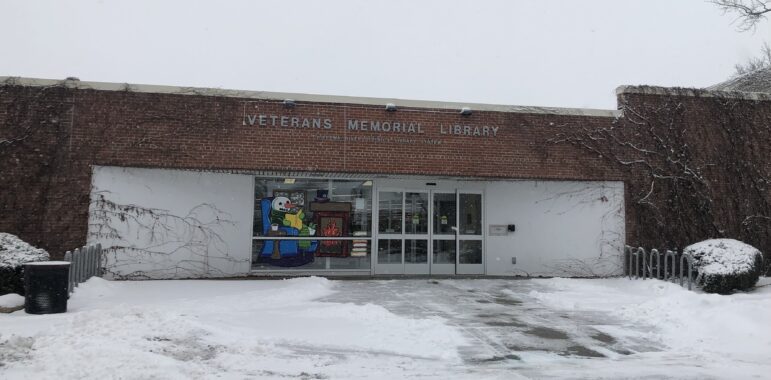
Since March of 2020, Chippewa River District Library Director Corey Friedrich has had to deal with COVID-19.
Libraries like the Chippewa River District Library were included in the initial state-wide shutdown, forcing the system online, barring in-person work.
However, as the pandemic progressed, Friedrich and the CRDL administration started developing programs that could still function with the state’s safety restrictions. Online resources, curbside pickup and other programs kept the library in-touch with Mt. Pleasant and the surrounding community.
Spartan Newsroom Reporter Alex Faber spoke with Friedrich about the past couple of years and how COVID-19 is impacting their job.
The Interview
Q: What is your position with the library?
A: My name is Corey Friedrich. I’m the library director of the Chippewa River District Library.
Q: How long have you been working here?
A: I’ve been here for 20 years. I’ve been in this role as the director for the past six.
Q: Take me back to March 2020, the first wave. What was the response of leadership and the library when it was in question what was going to happen?
A: In March of 2020, the governor shut the state down completely. It really wasn’t within our power to do anything else, so we just shut down like everybody else did. We had no services for the public in any of the buildings, and the employees weren’t coming in, but we do have a website and lots of resources there, so we did keep that open for people. We expanded the Wi-Fi in all of our buildings so that it would extend out into the parking lots or into the street. Whatever the case may be at whatever branch it was, just so people could come to the library and use the Wi-Fi if they didn’t have that at home.
Q: Did you see a lot of students pull up?
A: Not so much students. I did walk up to the library every day – I just had to make sure it wasn’t flooding or on fire or anything like that – and when I walked up to the building, I would see people parked on the street with their laptops open. Generally, it seemed like there were more – I mean, they could be students, but they would be nontraditional, they seemed to be in their 30s and 40s. I didn’t really see any younger people.
Q: When the lockdown really took hold closer to the fall, did you start any pickup programs or anything like that? I honestly don’t remember the timeline.
A: After the lockdown was done, we still were very careful. We did curbside only for almost a year. So we had, in our back parking lot, five spots, and we had cones in each one with a number. People could pull up and call the library, we would verify their information over the phone and bring their stuff out to them. At the branches, they don’t all have parking lots, so a lot of them would just use the closest spot to their building, but they’re not as busy as here [Veterans Memorial Library] so generally it was only one person at a time anyway. And again, we still had all our online resources available for people. People couldn’t be in the buildings, they couldn’t use the computer labs. And then our programming team did a lot of virtual programs. They also made make and take kits that parents would come and take home for their kids. So that way we weren’t face to face with anybody, but they were still doing some programming from the library.
Q: When that happened – when you went online – did you see a dropoff or an increase in the amount of books people were getting?
A: In both ways. The amount of physical books going out was less. Not everybody was even comfortable doing curbside service. And a lot of people that come in, they don’t really have anything in mind that they want to get, they just kind of want to browse, which is really hard to do virtually. But we did see an increase in our e-book checkouts. We do have two services, Hoopla and Libby, and those went way up. That was the easiest way for people to browse and get books at that time.
Q: As the director, were there any tough decisions that were made through this? Or was it directed from the governor?
A: Early on, it was all driven by Lansing, because there were laws in place that prohibited us from doing anything else. So it was a very easy decision for us because either we’re going to break the law or we’re not, and generally, we’re not going to break the law. In some of those intermediate steps, there was a lot of conversation with the board about what people felt comfortable with, and the board was concerned with what the staff felt comfortable with too. So we tended to do what was the safest and what everybody felt comfortable with.